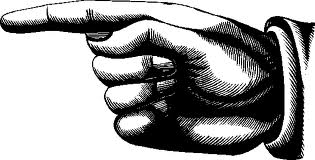
With the advent of print and the increasing saturation of books, extensive reading took over intensive reading. Instead of re-reading the same canonical text- that of scriptures usually exclusive to an elite few- people were able read a wider scope of books; likewise, this growth of reading also meant that less attention was paid to each individual text. The reader, thus, became so saturated with the overabundance of material to read he was essentially lost in a plethora of options of ‘escape’. Reading, in a way, shifted from serving a solely pedagogical form- a tool of the dominant culture occupying a public space- into a personal activity wherein the individual was elevated.
This change opened up a new space of interiority within the self. As reading “can be private without necessarily being a solitary pursuit” (Chartier 133), the individual had multiple frames of reference for his 'self'. He could define himself through multiple roles and adopt multiple positions of sympathy without acting upon the social world. The opening of a private life within the individual, thus, was in conjunction with the increasing confusion of the 'self'; furthermore, it separated word from event, interiorizing it so the word became a thought never escaping the confines of the self. As such, clear boundary was demarcated between the private space of the reading self and the public world of politics and social activity.
The increase in books also resulted in the growth of libraries. The library, in this light, can be construed as a simultaneously physical and metaphysical space wherein, even though one was alone, one could retreat into the world hidden behind the face of a book. It came to define the physical space of thought wherein even though one appeared to be alone, one was occupied in an imaginative other dimension solely existing within the confines of the book.
This change opened up a new space of interiority within the self. As reading “can be private without necessarily being a solitary pursuit” (Chartier 133), the individual had multiple frames of reference for his 'self'. He could define himself through multiple roles and adopt multiple positions of sympathy without acting upon the social world. The opening of a private life within the individual, thus, was in conjunction with the increasing confusion of the 'self'; furthermore, it separated word from event, interiorizing it so the word became a thought never escaping the confines of the self. As such, clear boundary was demarcated between the private space of the reading self and the public world of politics and social activity.
The increase in books also resulted in the growth of libraries. The library, in this light, can be construed as a simultaneously physical and metaphysical space wherein, even though one was alone, one could retreat into the world hidden behind the face of a book. It came to define the physical space of thought wherein even though one appeared to be alone, one was occupied in an imaginative other dimension solely existing within the confines of the book.
